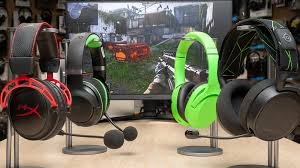How Quickly Can You Learn JavaScript? That depends on a lot of factors. Some are quick to learn it, others slowly. JavaScript is utilized to create websites, applications, games, and much more. It is a robust and popular programming language. If you are looking to be a developer, you need to learn JavaScript.
Here in this guide, we will demonstrate how quickly you can learn JavaScript, what influences your speed, and how to learn it more effectively. You’ll also get to view actual timelines and tips that are effective. Here is your entire journey to becoming a JavaScript master step by step.
Why Speed Matters in Learning JavaScript
When learning JavaScript, time matters. Some people want a new job fast. Others want to build something quickly. That’s why knowing how long it takes is helpful. It can help you plan and stay motivated. Many people ask, “How fast can I learn JavaScript?” The answer depends on how you study and what you already know.
JavaScript is everywhere. It’s used in web pages, games, apps, and tools. That makes it a useful skill. If you learn it well and fast, you open new doors. You can become a web developer, app builder, or even a freelancer. So, the faster you learn, the sooner you grow your skills and career.
Read more about : How to Use 3uTools to Change iPhone Location?
Real Things That Affect Learning Speed
There are many real factors that affect how fast you learn JavaScript. The first is your starting point. If you already know HTML and CSS, JavaScript will be easier. But if you are a complete beginner, it may take more time to understand the basics.
Another big factor is how much time you give every week. If you spend 2 hours a week, it will take longer. If you study for 10 hours a week, you will move faster. Your learning tools also matter. Some people use free YouTube videos. Others take full courses or join coding bootcamps. The better your learning source, the faster you learn.
Beginner to Pro: Actual Timeframes
Let’s now see how much time it takes to reach different levels. These are real timelines based on your time commitment.
| Learning Level | Weekly Hours | Total Time Needed |
| Basics (syntax, DOM) | 5–10 hrs | 1–2 months |
| Intermediate (ES6, APIs) | 10–15 hrs | 3–4 months |
| Advanced (OOP, modules) | 15+ hrs | 6–9 months |
| Job Ready (projects + Git) | 30+ hrs | 3–6 months full-time |
Fastest Ways to Learn JavaScript
To learn JavaScript fast, you need the right path. Some people start with random videos. But that slows them down. You should follow a proven learning path. There are many good options. Self-learning is free but slow. Bootcamps are fast but cost money.
The best method is to mix things. Start with a short course. Then build a small project. After that, read real code from open-source projects. Ask questions in forums. And keep coding every day. These help you move from watching to doing. That’s where real learning happens.
you will might: How to Use Amazon Music as a Ringtone on iPhone?
Tips That Help You Learn Faster
If you want to learn faster, do not just watch. You must code. When you watch a tutorial, pause and write the code yourself. That helps your brain remember better. Also, try to build something of your own. Even a small calculator or to-do list app is helpful.
Use tools like JSFiddle or CodePen. These let you try code in the browser. Repeat old lessons to make them stick. Join online coding challenges. One popular one is #100DaysOfCode. That keeps you active and consistent. Also, try to explain what you learn to others. Teaching makes you understand better.
Mistakes That Slow You Down
One big mistake is jumping into advanced topics too early. If you don’t learn variables, loops, and arrays well, you will get stuck later. Some people keep watching videos but never write code. That is called tutorial hell. It slows your progress.
Another mistake is switching between resources too often. Pick one good course and stick with it. Also, don’t be afraid of errors. Debugging helps you learn. Many new learners also ignore version control tools like Git. But Git is important for real-world coding. Avoid these mistakes to learn Those much faster.
Real-Life Case Studies
Let’s look at how fast real people have learned JavaScript. These stories will help you understand your own timeline better.
| Learner Type | Background | Time Taken |
| Student | No coding before | 6 months to build real apps |
| Career Changer | Worked in sales | 4 months with full-time bootcamp |
| Hobby Learner | 1 hr/day only | 8 months to freelance part-time |
What You Should Focus on First
When starting to learn JavaScript, many people feel confused. They ask, “Where should I begin?” The answer is simple. Focus on the core parts of JavaScript first. Learn about variables, data types, arrays, objects, functions, and loops.
You should also learn how to work with the Document Object Model (DOM). The DOM lets you change web pages using JavaScript. For example, you can add text, change images, or react to clicks.
Tools That Help You Learn JavaScript Faster
To speed up your learning, you can use tools made for JavaScript learners. One helpful tool is CodePen. It lets you test code right in your browser. Another good tool is Visual Studio Code (VS Code). It’s a free editor that many real developers use. You can install extensions that help you write better code.
Also try using browser developer tools. Just right-click on a webpage and click “Inspect.” You can write JavaScript directly in the console. This is a great way to test your ideas. There are also websites like freeCodeCamp, W3Schools, and MDN Web Docs that teach JavaScript for free.
JavaScript Projects That Boost Learning
One of the best ways to speed up your learning is by building simple projects. These don’t have to be big or perfect. They just need to use what you’ve learned.
Here are some great project ideas
| Project Idea | Skills Practiced |
| Calculator | Functions, DOM manipulation |
| To-Do List App | Arrays, Objects, Events |
| Quiz Game | Conditions, Loops, Arrays |
| Digital Clock | Date object, setInterval |
| Weather App (with API) | JSON, Fetch API, async code |
How to Stay Motivated While Learning
Sometimes, learning JavaScript can feel hard. You may not understand a topic. Or your code may not work. This is normal. Every developer goes through this. What helps is breaking big problems into small ones. Don’t try to understand everything in one day.
Also, keep a progress journal. Write down what you learn each day. This reminds you how far you’ve come. Join online groups or Discord communities where you can ask questions.
What to Learn After JavaScript
Once you learn core JavaScript, what’s next? The next step is to build real-world web apps. You should also learn how to use Git and GitHub. These tools help you save and share your projects.
After that, you can start learning JavaScript frameworks like React, Vue, or Svelte. These help you build larger apps faster. If you like backend development, learn Node.js. It lets you build servers and APIs using JavaScript.
Summary Table: Key Takeaways
| What to Do | Why It Helps You Learn Faster |
| Code daily | Builds memory and speed |
| Build small projects | Turns knowledge into skill |
| Use real tools | Prepares you for job-level coding |
| Learn by fixing errors | Helps you understand how code works |
| Teach others or blog | Makes your learning stronger |
| Avoid tutorial loops | Forces you to think on your own |
JavaScript vs Other Languages: Which Is Faster to Learn?
Many beginners wonder if JavaScript is the best language to start with. They ask if it’s easier or harder than Python or other coding languages. The truth is, JavaScript is one of the easiest languages to start with, especially if you want to build things on the web. You don’t need to install anything to get started.
Python is also simple, and many people start there. But teaches you how websites work, which is a huge advantage. If your goal is to become a web developer, JavaScript is the better choice. It is also more fun and visual, because you can change the look and feel of a page in real time.
What You Can Do After Learning JavaScript
Once you’ve learned JavaScript well, your possibilities open up. Many people begin with simple projects, then move into real jobs or freelance work. You can become a frontend developer, building websites and apps that users interact with. Or you can go further and learn Node.js, which lets you work on the backend too.
Many JavaScript developers also get jobs with titles like full-stack developer, web designer, UI/UX developer, or even JavaScript engineer. JavaScript is used in popular frameworks like React, Angular, and Vue. If you learn these after mastering JavaScript basics, you’ll have a strong profile.
FAQ”S
Can I learn JavaScript in 30 days?
You can learn the basics, like variables and loops. But building apps or learning frameworks takes more time.
Do I need to learn HTML and CSS first?
Yes. JavaScript works with HTML and CSS on web pages. Knowing them helps you use JavaScript better.
Is JavaScript harder than Python?
JavaScript is not harder, but it’s different. Python is cleaner. JavaScript is more powerful for the web.
Can I get a job with just JavaScript?
Yes. If you build good projects and understand JavaScript deeply, you can get front-end jobs.
How do I know I’m learning well?
Track your progress. If you can build things without help, solve coding problems, and fix errors, you’re on the right path.
Conclusion
How Fast Can You Learn JavaScript? That depends on you. Some people do it in months. Others take a year. It’s not a race. What matters is learning it well. If you stay consistent, code daily, and build real projects, you will grow fast. Avoid mistakes, use smart tools, and don’t give up. JavaScript can change your career and future. Just start now and keep going.




